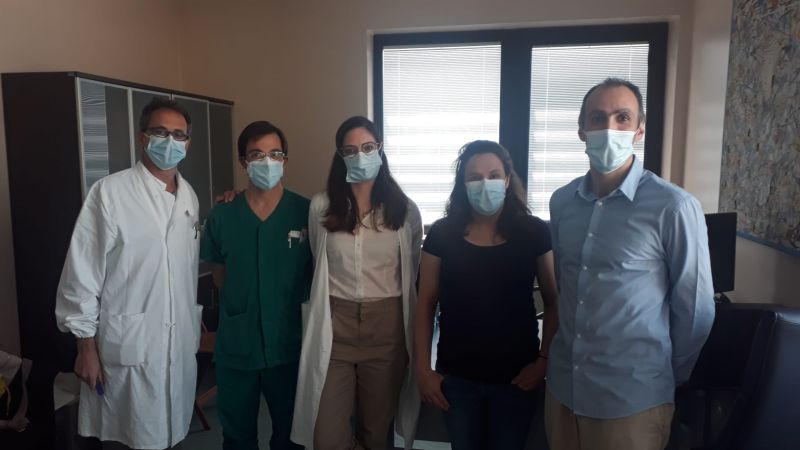
The first patient was enrolled at the Policlinico San Matteo, Pavia (Italy). This important company milestone was reached according to development schedule. The main objectives of the study are to collect cardiac ultrasound data from patients diagnosed with ventricular tachycardia (VT). The investigators will analyze ultrasound image data quality and establish if it is adequate to support the development of an add-on medical device to guide proton-therapy systems currently used in oncology and adapt the technology to non-invasive treatment of cardiac arrhythmias. Such device would also include a gating signal generator to precisely gate treatment beams, which are delivered to the patients during radio-ablation procedures.
Robert Rordorf, MD, Chief of the Electrophysiology Unit of San Matteo Hospital, said: "Catheter ablation is the gold standard therapy for recurrent scar-related VT, but its efficiency is suboptimal. Proton therapy shows great promise due to its high-dose delivery capability, while minimizing the off-target dose. The challenge remains how to treat a beating heart. This research is testing a new promising technology to optimize compensation for cardiorespiratory movements”.
Marina Izzo, Chief Executive Officer of Campus Biotech based EBAMed, said: “Current ablation systems are inadequate to treat the thick ventricular tissue. At EBAMed our vision is to enable proton therapy for ventricular ablation. This powerful technology can generate efficient scars and abolish ventricular arrhythmias in less than 30 minutes.”
Ultrasound guidance has the potential to unleash the power of proton therapy for cardiac arrhythmia patients, filling an important unmet need. Around 53 million people globally experience some type of cardiac arrhythmia. For older persons with a history of heart disease, arrhythmia can lead to serious medical complications. The development of a radiation therapy approach, combined with an unique motion monitoring and gating solution, could be of substantial value in providing alternative therapy to either drug therapy or catheter-based ablation, and to reduce radiation to innocent myocardium.
(Press release)























































Please login or sign up to comment.
Commenting guidelines